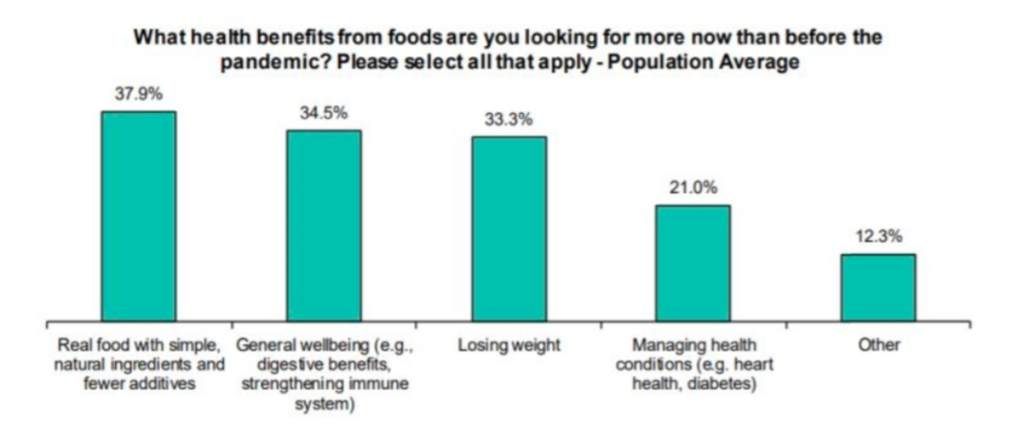
“Balancing personal lives, work life, wellness, indulgence and convenience is taking a toll on consumers,” according to Food Trends: Consumer, Strategy and COVID-19 from Schieber Research. “The search for solutions for easier living — and food/supplements to mitigate stress — is on the rise.”

As a result of the pandemic, stressed-out consumers are looking for more for less:
- Quick nutritious meals for the whole family, including nutrition in ready-made meals, that require less effort and allow more family time.
- Solutions not products — for example, meal kits, partially prepared, ready to heat/eat.
- Affordability — consumers’ existing price awareness is expected to increase.
In times of stress, it becomes more important than ever for at-home food to offer taste, fun, and connection. People want to recreate the experiences they are missing by not going to restaurants or traveling.
The report also emphasized the importance of nuanced wellness: Consumers follow a variety of diet strategies, ranging from intermittent fasting to specialized niche diets to plant-based/flexitarian eating. As a result, the food industry needs to give consumers the information they need to make an informed decision based on their specific requirements.
Consumers want solutions
In looking for convenient food solutions, consumers want help in four areas:
- Family meals: Nutritious, affordable, tasty, easy-to-make meals that accommodate more people in the household eating more meals at home. Fun and shareable food experiences to help ease stress.
- Health: Better ingredients, functional benefits, and clean, safe, natural food that supports mental and physical wellness.
- Social consciousness: Food that supports the community, local manufacturing, and sustainable and environmental practices. Handmade and small batch.
- Affordability: Everyday premium products, including high-quality indulgent food to recreate away-from-home experiences.
COVID effects on other trends
The Schieber report also looks at the effects of COVID-19 on other trends and predicts what might happen post-COVID:
- Although consumption of familiar comfort food has increased during COVID-19, it will fade again. In the long run, new and unusual experiences will attract young consumers.
- The pandemic will speed up the ethical and sustainable food trend, as consumers become more socially aware and more open to some sacrifices for the greater good.
- Plant-based will continue to grow post-COVID, as many people consider these products healthier, safer, and more ethical.
- In a post-COVID world, digestive health will be the most important trend, due to its relationship to immunity, especially as science comes to better understand the microbiome.
Now, more than ever, consumers look for help from food manufacturers and retailers. Meeting the new set of consumer demands and expectations offers companies a way to cultivate consumer loyalty.







